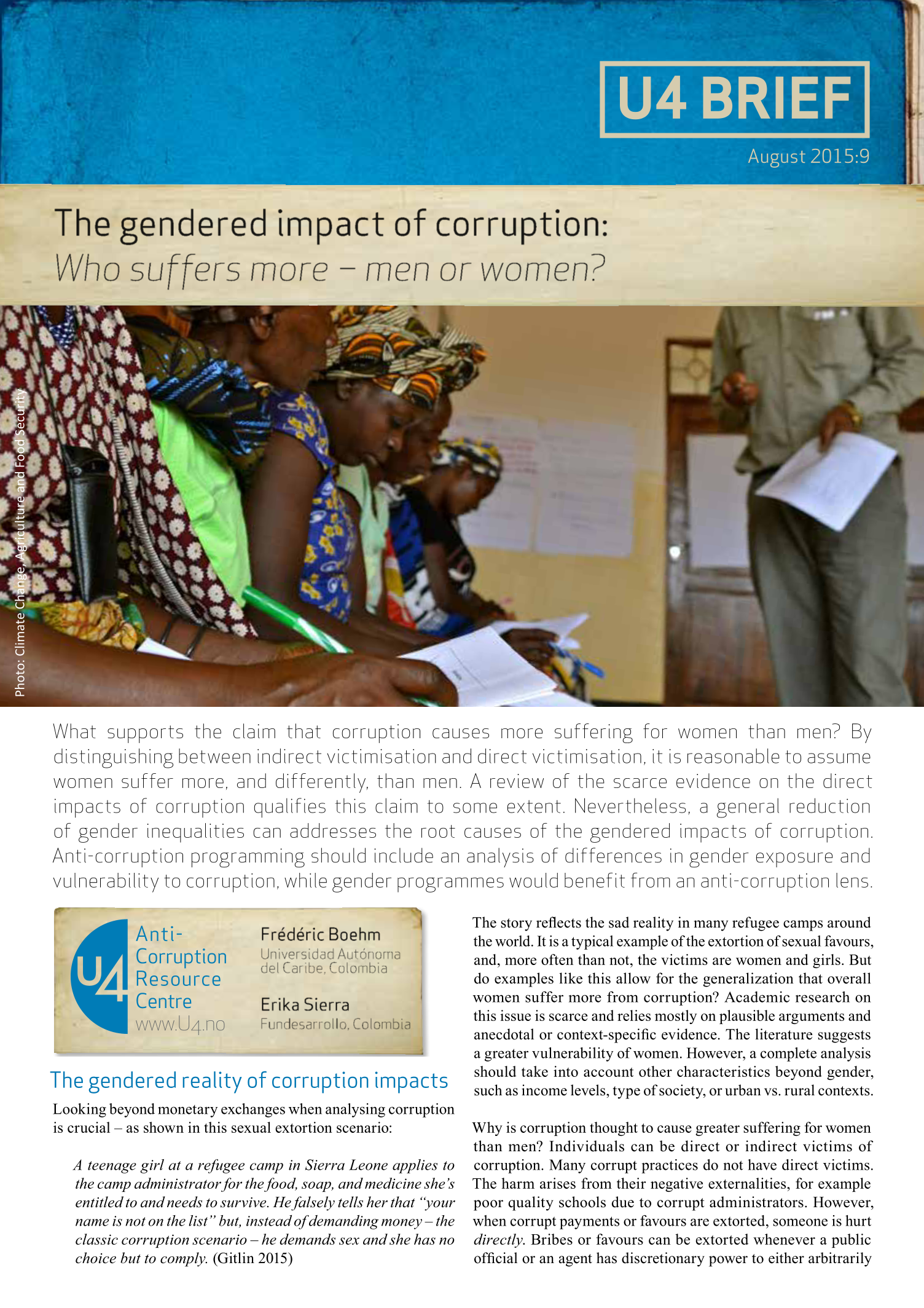U4 Brief
The gendered impact of corruption: Who suffers more – men or women?
What supports the claim that corruption causes more suffering for women than men? By distinguishing between indirect victimisation and direct victimisation, it is reasonable to assume women suffer more, and differently, than men. A review of the scarce evidence on the direct impacts of corruption qualifies this claim to some extent. Nevertheless, a general reduction of gender inequalities can addresses the root causes of the gendered impacts of corruption. Anti-corruption programming should include an analysis of differences in gender exposure and vulnerability to corruption, while gender programmes would benefit from an anti-corruption lens.

Cite this publication
Sierra, E.; Boehm, F. (2015) The gendered impact of corruption: Who suffers more – men or women? Bergen: Chr. Michelsen Institute (U4 Brief 2015:9) 4 p
Disclaimer
All views in this text are the author(s)’, and may differ from the U4 partner agencies’ policies.
This work is licenced under a Creative Commons Attribution-NonCommercial-NoDerivatives 4.0 International licence (CC BY-NC-ND 4.0)